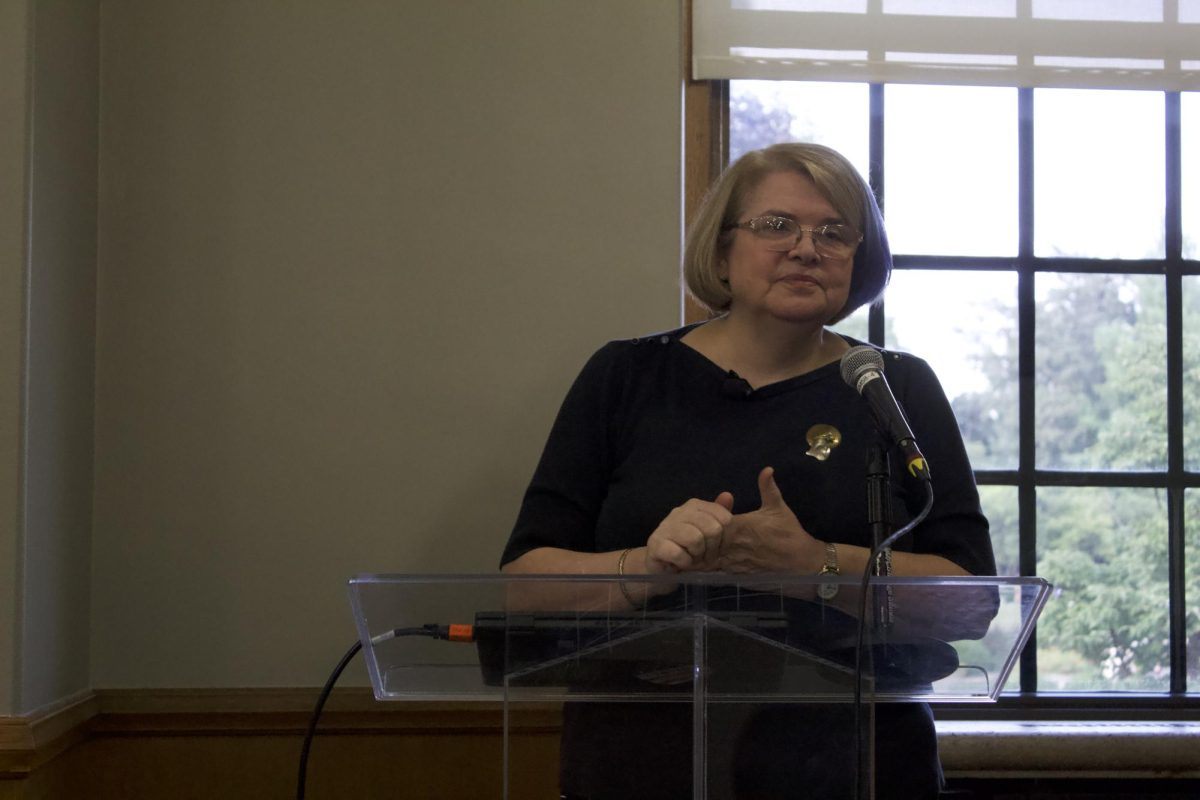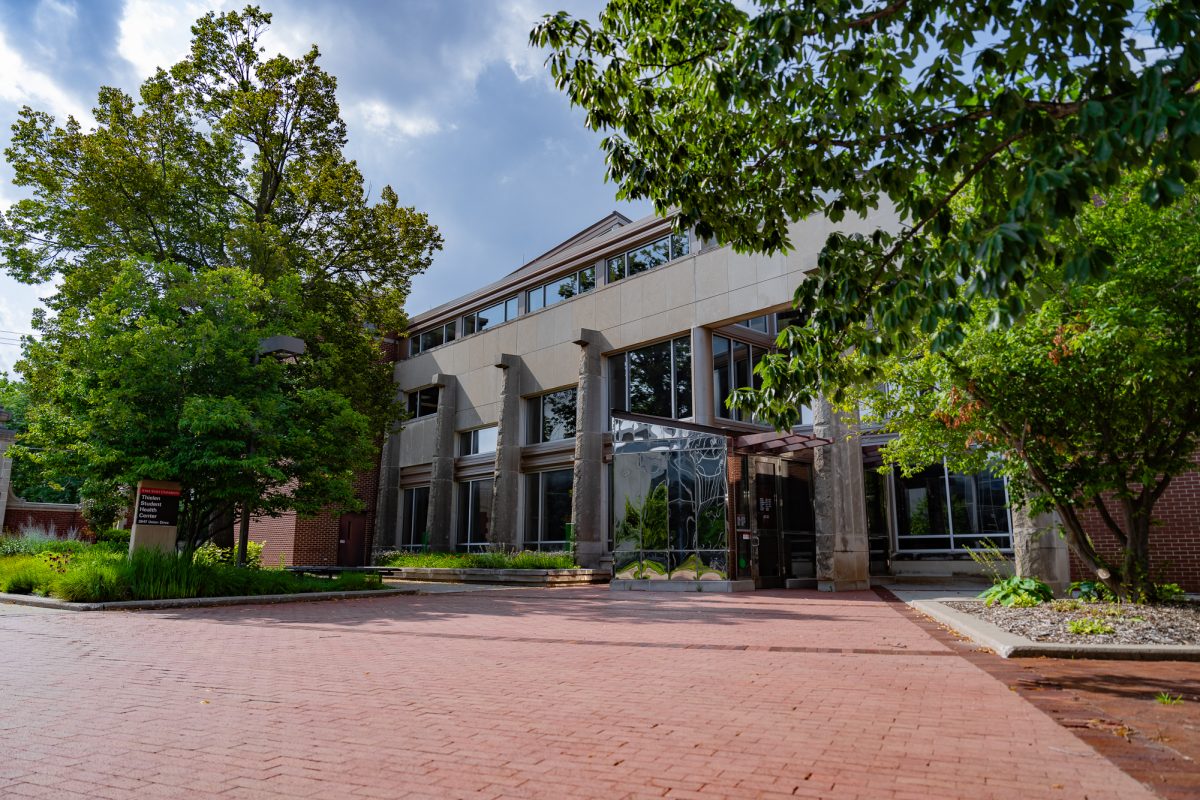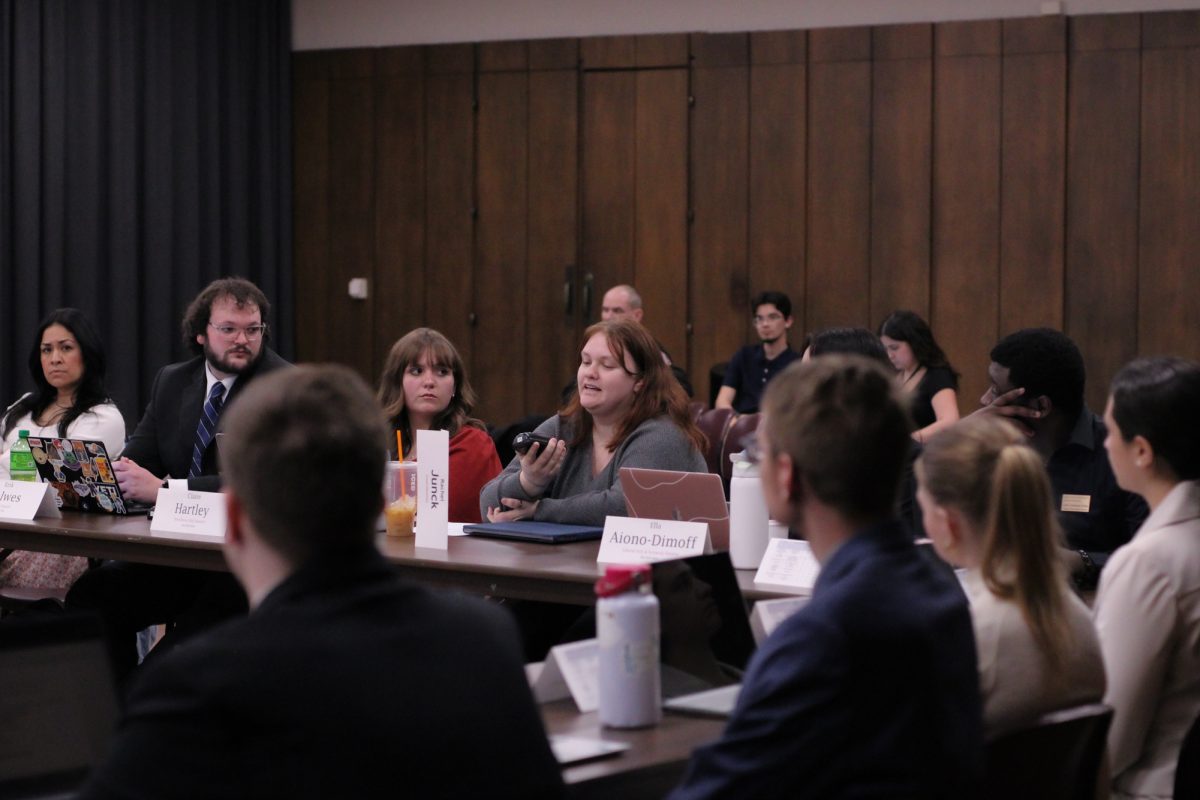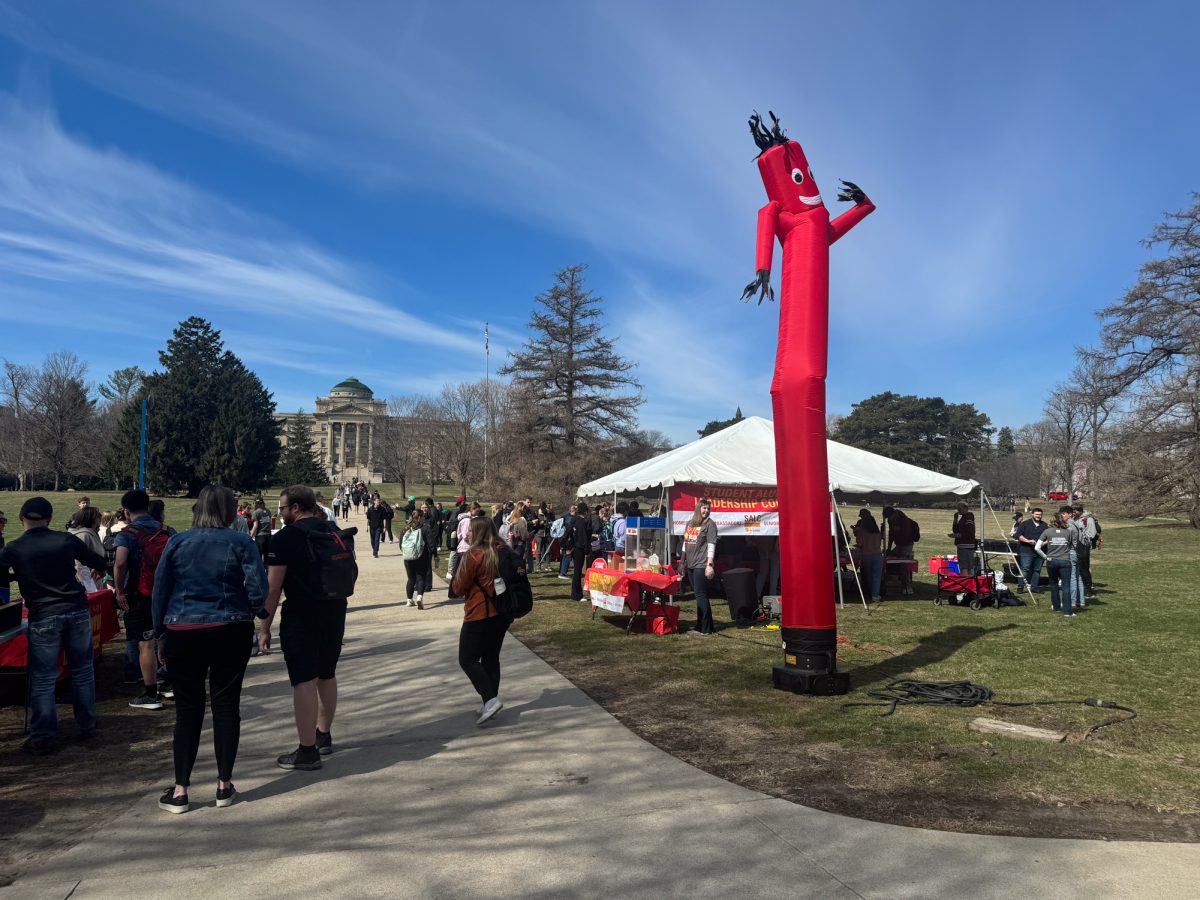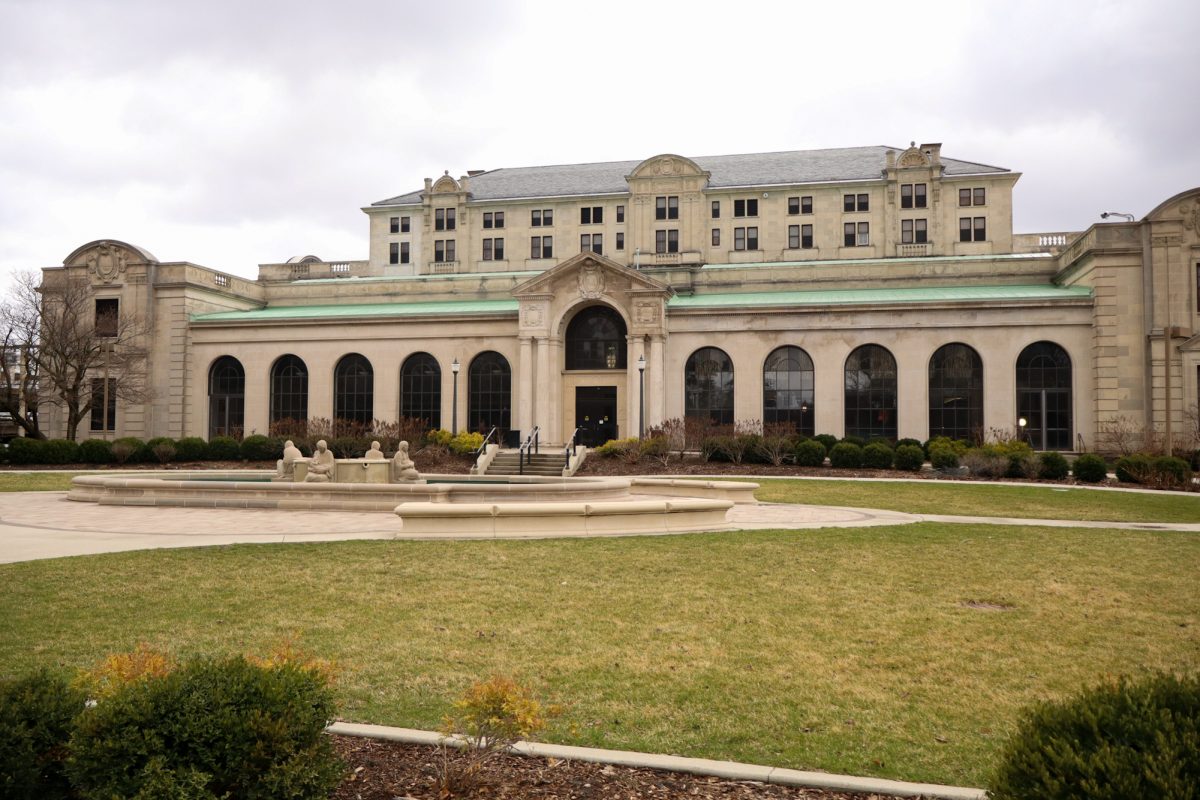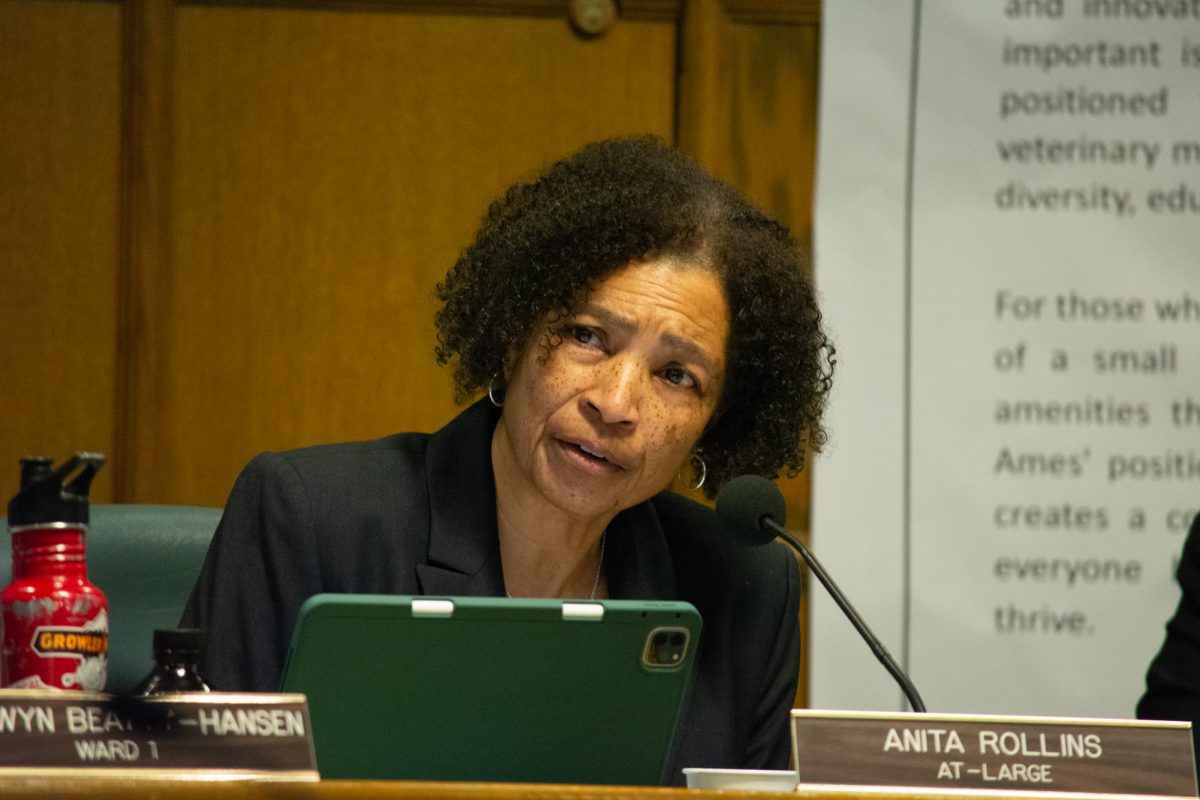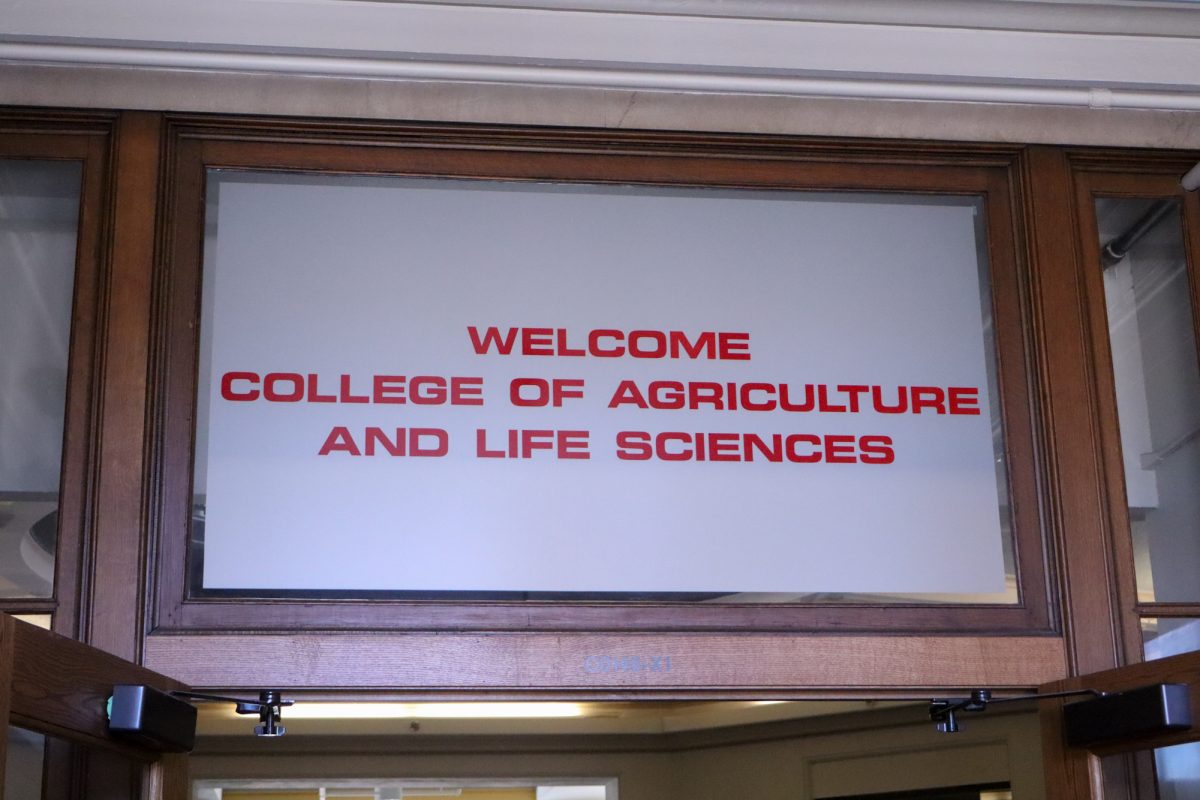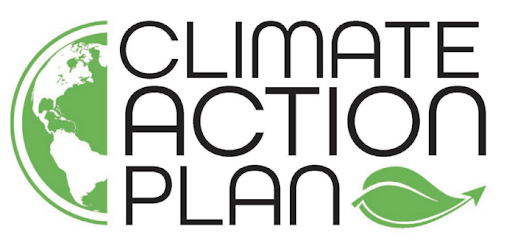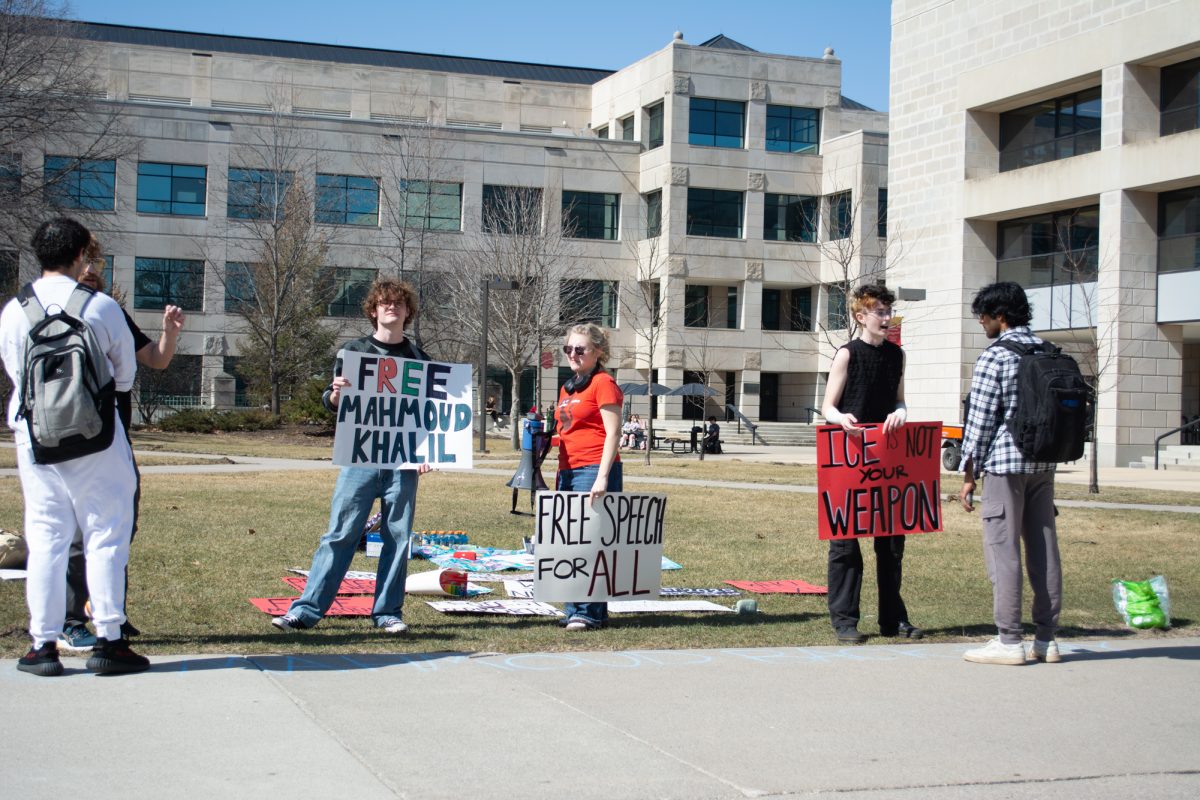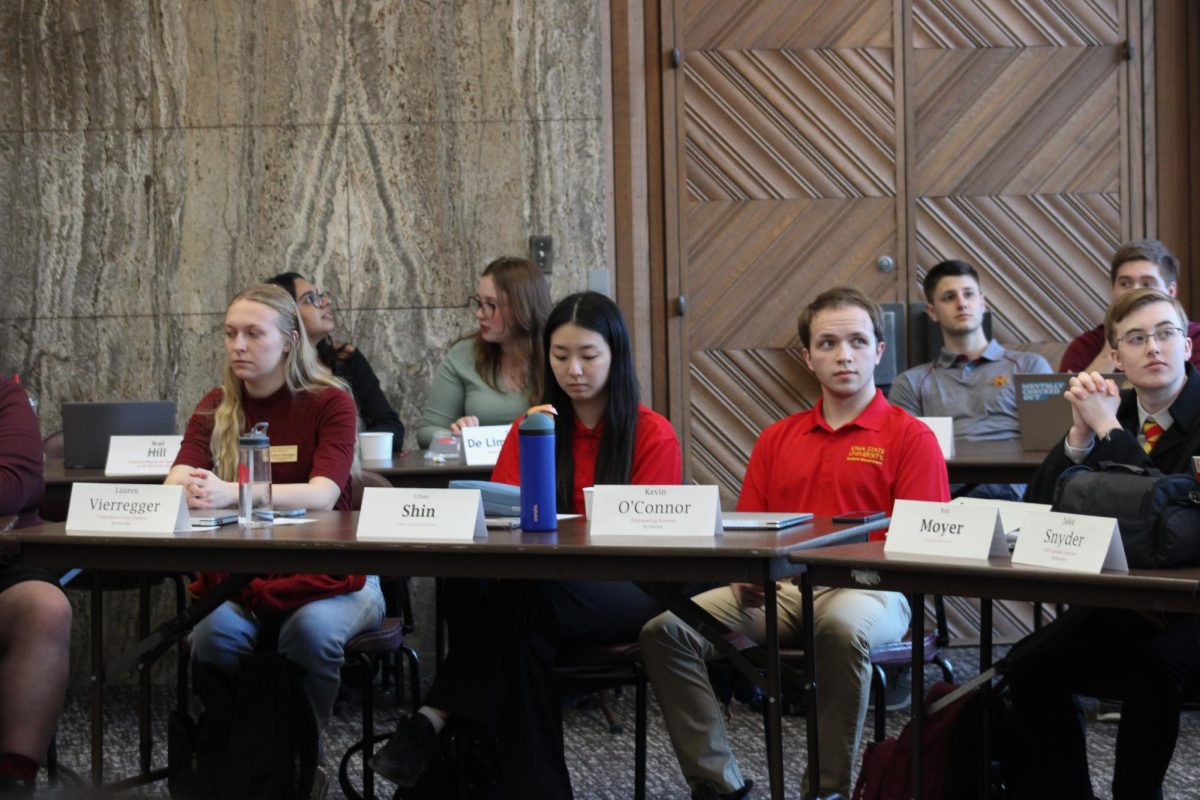Karen Kedrowski delivered Iowa State’s 2024 Constitution Day lecture Thursday, highlighting the history of presidential debates from 1960 to the present.
Kedrowski, a professor of political science and director of the Carrie Chapman Catt Center for Women and Politics, spoke to attendees about the ways that presidential debates have evolved over the years through television and social media.
During the lecture, Kedrowski explored how debates have changed since the first in 1858 between Abraham Lincoln and Stephen Douglas in an Illinois senate race. The two held seven debates in total, each taking place outdoors and lasting four hours long, with a focus on the issue of slavery. The next debate didn’t occur until 1948 in a primary debate between Thomas Dewey and Harold Stassen.
While speaking about successful–and unsuccessful–debate performances, Kedrowski focused on how several factors, including a politician’s appearance and ability to field questions, can change the outcome of debates and elections drastically.
She also spoke about the three debate performances between John F. Kennedy and Richard Nixon in 1960, one of which was the first televised presidential debate.
According to Kedrowski, when voters were polled after the first debate, their views of the candidates depended greatly on whether the voters had watched the debate on television or listened to it on the radio. Those who had watched on television favored Kennedy, while those who listened on the radio favored Nixon.
Kedrowski says this was due to how each candidate appeared on camera during the debate.
“[Nixon] had just been released from the hospital,” Kedrowski said. “So he wasn’t feeling that great, he didn’t wear a lot of makeup and he had five-o-clock shadow… so he just looked kind of pale and scary. It just didn’t come off well.”
Kennedy, on the other hand, was wearing make-up and appeared more “presidential” than Nixon at the time. He also addressed the camera while he spoke, thus addressing the voters during the debate.
Kedrowski also spoke on the recent presidential debates, including the two that have taken place during this election year. While speaking on President Joe Biden’s performance in the June debate, Kedrowski talked about the ways that this debate changed the election dramatically.
“There was absolutely no other case of a presidential candidate performing so badly that they are forced to withdraw from the race,” Kedrowski said. “What we saw happening, just in the last couple of months, is absolutely unprecedented.”
Before concluding the lecture, Kedrowski answered the question of whether she thinks presidential debates will continue in the future.
“I certainly think they will,” Kedrowski said. “They are far, far, far too ensconced in our politics and our traditions.”
The next debate, and the first vice presidential candidate debate of the year between Minnesota Gov. Tim Walz and Sen. J.D. Vance, R-Ohio, is set to take place at 8 p.m. on Oct. 1 (CST) on CBS.


